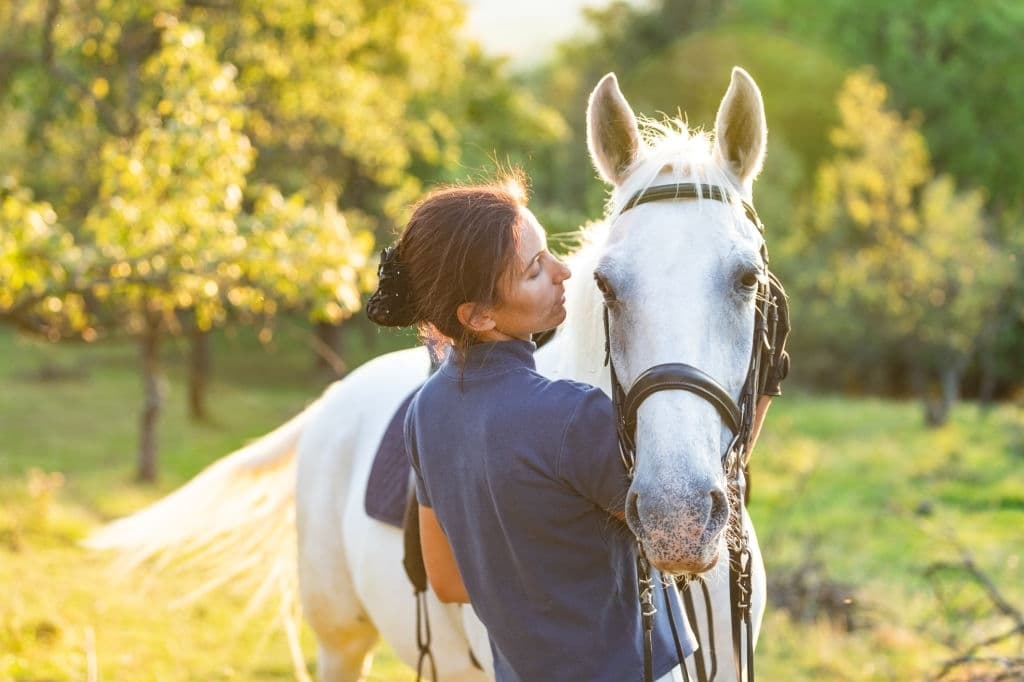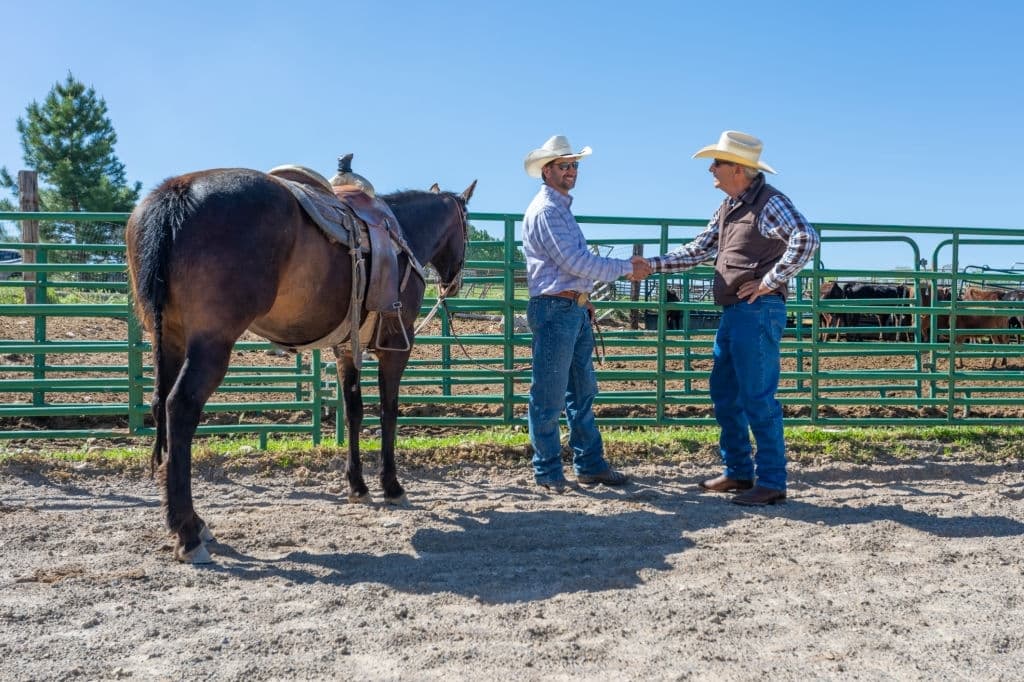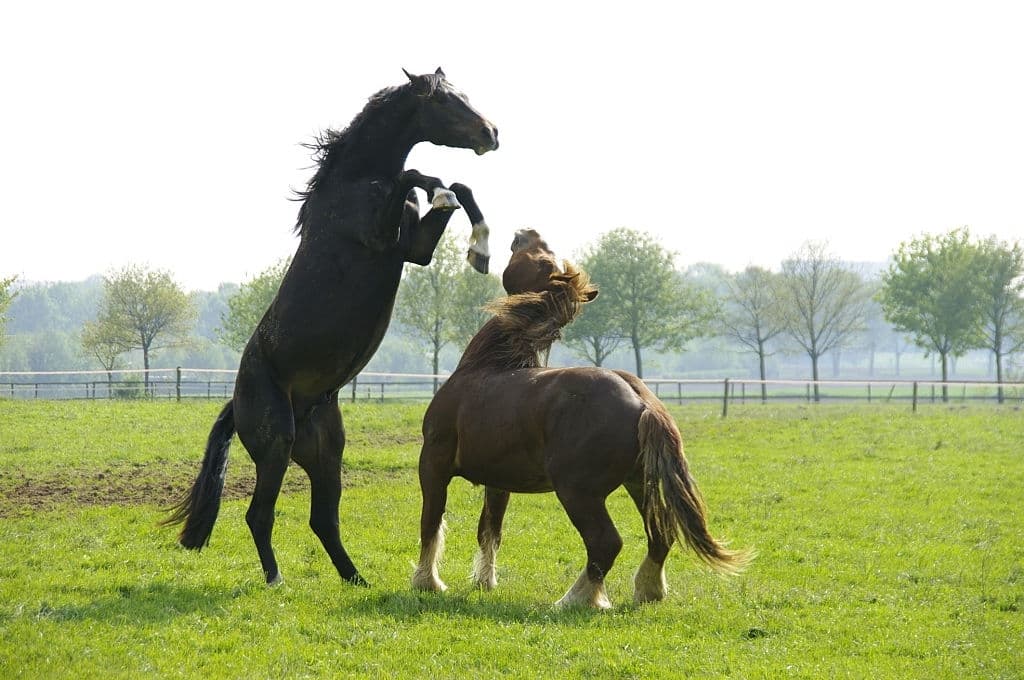Typically, there are many reasons why people own a horse. Some people invest in horses to benefit from the therapeutic effects of riding or improve their equestrian skills. For others, having a horse means making a revenue stream off the animal by breeding them or having a companion in the outdoors. Whatever the reason is, owning a horse can be a great decision.
Now that you’ve decided to get one, it’s time to consider the costs associated with horse ownership. In most cases, buying a horse can be costly.
If you are under the impression that the initial payment for purchasing a horse is the end of your expenses, you might want to read this article and learn why this is such a wrong conception. Yes, acquiring a horse can be pretty expensive, but that is not the end of the cash that you will need to shell out.
Just how much depends on certain factors like the type of horse you get, where it will live, and even where you reside yourself. The purchase price is simply part of a larger, more complex equation. Thus, the purpose of this article is to list and explain all the expenses that you should be taking into consideration before opting to get a horse.
Seek the Help of Professionals

First things first: The easiest way to gather information regarding almost anything and everything related to horses is by speaking with experts in the field. These professionals know all the ins and outs of horse breeding and maintenance and will be able to point you in the right direction based on your conditions and criteria. They are also capable of suggesting the best breeds to purchase, depending on your budget and preference.
For a comprehensive guide on basic and advanced horse care, try checking out the organization known as Horsevills. These experts not only provide the right horse care products for any breed of horse, but they also feature a blog section on their website where horse owners of all experience levels can collect relevant information.
On top of that, potential or current horse owners can personally contact Horsevills experts at any time and seek out any information they might want. We believe it would be unwise to not contact at least one person who knows his or her way around this field before deciding to look for a horse.
How Much Does It Cost to Purchase a Horse?

Many fear the initial cost would be the end of their dreams of owning a horse. However, this is not necessarily true. There are multiple ways in which you can get a horse, and the method you opt for will determine the cost.
For a direct purchase, a fairly standard range would be anywhere between $0 and $10,000. While such a massive range does not help potential buyers, it does show the extensive variety of options that they can explore. Such large ranges often make way for difficult queries among would-be breeders, with an example being “What is the difference between a free horse, a $1,000 horse, and a $10,000 horse?” By the time you finish reading this article, we believe you will have a fair amount of knowledge regarding horse purchase and maintenance.
A lot depends on the purpose of the horse. Some people might be looking to get a racehorse, while others may simply be in the search of a pet horse for recreation, with the latter being the more common case.
As it stands, more than three million horses are kept for recreational purposes around the world, compared to just over half a million horses that were acquired for work. A horse’s pedigree also plays a key role in its initial pricing. The following sections describe three of the most common methods of purchasing a horse.
Free
If you have no problem doing some serious legwork or are not at all concerned about the age of the horse, it is indeed possible to acquire one completely free of cost (at least initially). In such cases, there is no need to visit any specialized breeders or the Humane Society to get a horse.
The aim is to find someone who is already a horse breeder and is looking for a home for one or more of his or her horses, either due to financial reasons or because they are not able to take care of the creature/s anymore.
A lot of people live their whole lives taking care of numerous breeds of horses, and when they get old, gradually start giving them away to people who are willing to assume their care. These people are generally not motivated by money and only care about the horse’s future. Thus, it is a wonderful option for would-be horse owners who are not looking to spend any money on acquiring a horse.
Adoption
Adopting a horse rather than purchasing one entails collaborating with a humane organization or another type of animal rescue institution. If households with pet horses are not a common scene in your area, you may need to look for a rescue facility that cares for homeless horses beyond the boundaries of your city.
You should anticipate paying an application fee or an adoption fee to assist the rescue organization in recouping any costs incurred while nurturing and fostering the horse before adoption. This amount can range from $25 to well over $500, based on many criteria such as how long the horse has been housed, the breed of the horse, or if the horse has any specific requirements.
In terms of money, horse adoptions fall somewhere between free acquisitions and direct purchases from breeders. While adoption does involve money, it certainly is not in the range of actual purchase costs.
Breeder
Breeders are generally perceived as the only source for acquiring a horse. This is not true, as you are well aware by now. However, to get the horse of your dreams by fulfilling all your criteria, resorting to a breeder is the best option.
Purchasing a horse from a dedicated breeder is by far the most expensive but also the most versatile choice. You would need to pay for showmanship, pedigree, and breeder experience. A horse purchased from a breeder might cost anywhere from $100 to an excess of $10,000.
In almost all cases, the pricing depends solely on the breeder. Thus, the smartest thing to do is to not compare various breeders but the breeds themselves.
The Purchasing Process

Be aware that during the process of purchase, the cost of the horse is not the only expense that you will incur. You will have to start dishing out money even before deciding on a horse. For instance, it would be silly to purchase a horse with a terminal illness, and unless you have a veterinarian check it out, you would have next to no way of knowing it.
A horse’s overall fitness level itself is one of the key factors based on which breeders bump up the prices. Specialized vets tend to perform multi-stage (two or five, depending on the buyer’s budget) examinations to determine the existing fitness and health conditions of the creature. Some breeders even allow trial phases, although they do charge for it. If you think you need a test run or a few days with the horse, make sure you include the cost in your budget.
After the purchasing procedure is over, the next hurdle is to transport the horse to its new home. Transportation costs can rise exponentially depending on the distance and there are many formalities on the way, like crossing borders and approving paperwork.
You can either use a trailer of your own, in which case fuel costs would be yours to pay, or you can hire professional animal transporters, who will handle all of the details of the operation in exchange for money.
Furthermore, whenever state borders are crossed, horse owners need to provide a Coggins test report and a detailed health certificate to prove that the horse does not carry any infectious diseases like equine infectious anemia. If multiple state borders are passed, the costs will accumulate.
The requirements will mostly be different, so it is wise to have a look at animal transportation regulations for each state you need to go through. A simple estimation is that you would need to spend at least $10 per mile, considering a single border passage.
What Are the Cheapest and Most Expensive Horse Breeds in the World?
When it comes to horses, certain breeds are so diverse that some of the variants within the breed fall into the expensive category while a few others belonging to the same breed fall into the cheapest category. The most expensive horse breeds in the world include the Arabian, the thoroughbred, the Andalusian, the Dutch warmblood, the Oldenburg, and many more.
As for the cheapest breeds, examples include the wild mustang, the quarter horse, the Arabian, the thoroughbred, and more. Notice how the Arabian and the thoroughbred fall into both categories. Some of the largest horse breeds in the world come at very cheap prices. There are many options. Thus, it is essential to do your research and select the perfect breed based on your findings.
What Are the Post-Purchase Expenses of a Horse?
When determining whether to acquire a horse, there are numerous periodic expenditures to consider, and these expenses tend to continue throughout the lifetime of the horse. Thus, careful consideration should be given to whether recurrent annual expenses will become a nuisance at any time in the future. The following sections mention some of the most common expenditures that you would need to prepare for after bringing the horse home.
Health Maintenance
Although horses are known to be highly sturdy creatures, they do require constant medical care if you want to extract the best performances out of them. Ranging from monthly checkups to mandatory vaccinations, horse care requires a fair amount of medical visits.
Even if you spend a whole year only having to pay for health checkups, there is no guarantee that the horse will not fall prey to any sudden disease or an unfortunate accident.
In such cases, costs would soar exorbitantly. Many injured horses end up requiring extensive physical therapy or even surgery, none of which are cheap. A lot of “healthy” horses do not have a balanced gait, and their owners keep on ignoring this for as long as they can.
This is a terrible decision that can lead to permanent damage. Fixing such problems does require money but certainly not as much as when the damage reaches a serious stage.
By the end of the year, you may be looking at thousands of dollars worth of bills. Fortunately, however, most horses do not require such extensive medical attention if they are properly taken care of daily. We suggest you allocate around $300 to $600 per year for the overall medical expenses of your horse.
Medical Checkups
In terms of health checkups, it is advisable to take your horse to a vet two to three a year at the very least. One of the key reasons behind this is the fact that a horse may carry a fatal disease inside without ever showing any symptoms until there remains nothing left to do to save it.
Although a checkup may cost around $100, and you might feel that your horse is in tip-top condition, it is still strongly recommended to never miss any checkup sessions. When it comes to horses, identifying a problem early can prove to be the key factor in succeeding or failing in saving their lives.
Vaccinations
Every horse requires a mandatory dose of deworming medication once every two to three months. The typical cost of such medicines stands at around $15. As for full-fledged vaccinations, expect to pay around $25 to $50 for each dose.
The usual dosage frequency is twice a year, and this consists of booster shots for common ailments like tetanus and influenza. Although these costs are not significant, the importance of administering them at the right times is paramount.
Dental
Dental checkups are as important as health checkups as horses do a lot of chewing, which can affect the health of their teeth. Cavities are a common problem among horses of all breeds. Do not be surprised if the dentist prescribes a root canal for your horse. These are not at all uncommon.
Insurance
Many horse owners tend to look for horse insurance the moment they purchase one. These insurance schemes may vary considerably, mainly depending on the type and value of the horse.
Generally, a horse insurance policy covers healthcare emergencies and mortality issues and can be obtained from either veterinarians or separate organizations. As the range of insurance plans is so diverse, you can pick any policy within the range of $300 to over $12,000 a year.
Feeding
As horses are highly active creatures, they consume a lot of food every day. A regular horse has the capability of eating hay bales worth around $200 per month. They like snacking on vegetables and fruits.
On top of that, they also need various salts and other nutritional supplements, although many horse owners tend to ignore these. Make sure you do not, as these would only cost an additional $50 (at best) per month.
Living Environment Maintenance
Arguably the most important point of all, the living environment is crucial to the overall health and well-being of a horse. If you do not provide it with proper shelter, it will not have a happy, healthy life. Many horse owners decide not to board their horses. Rather, they prefer keeping the horse at home. In such cases, it is essential that proper fencing is installed all around the perimeter of the property.
Furthermore, the horse’s living quarters need to be warm, spacious, and convenient enough for it to be able to move around and eat without feeling any discomfort. But aside from making their living quarter’s comfortable, putting a layer of protection like a calf coat on your horse may also help them tolerate cold stress and other discomforts. This is especially true if you’re raising a baby horse that needs to be well-taken care of to grow healthily.
Generally, horse rugs, as a layer of protection, can assist animals in regulating their body temperature. When their body temperature is low, they’ll start to feel cold and use more energy to keep their body temperature. Otherwise, they might get sick, which is more costly to animal owners like you.
Apart from using a protective jacket for temperature regulation, it’s also important to make your animal’s living quarters less crowded. If there are other horses present, make sure they do not get in each other’s way, at least during the initial days of socializing with each other. This is to avoid any incident of aggression that may happen when two or more horses stand so close to each other.
Hence, housing them in individual stables is ideal if you own many horses. If there are other horses present, make sure they do not get in each other’s way, at least during the initial days of socializing with each other. An estimated amount that you can allocate for just the maintenance of the stable can be somewhere between $100 to $200 per year.
Emergencies
Emergencies are by definition unexpected. They can either take place multiple times a year or not happen again for the rest of your life. The same can be said about horses. Although emergencies can not be predicted and are simply random sets of events, know that they are mostly related to the diet, genetics, health, and the overall quality of a horse’s life.
Depending on the type of emergency, the necessary costs can be predicted. A minor muscle injury from an accident can cost a few hundred dollars. However, surgery can force you to dole out tons of money (over $10,000 in some cases).
Final Thoughts
Deciding to adopt or purchase a horse is a noble and rewarding decision. However, not thinking it through can be disastrous for both you and the horse itself. After all, this is a living being with basic needs. Make sure you have a comprehensive idea about horse care, as well as the costs associated with it.










